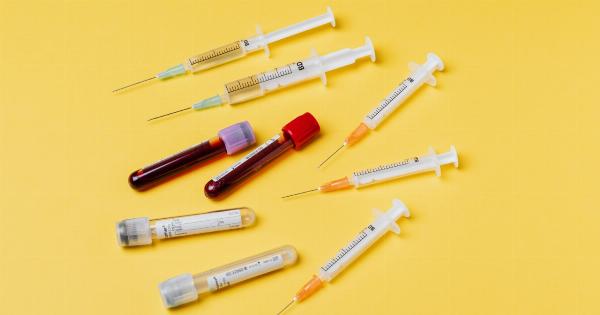Mediterranean Anemia, also known as Thalassemia, is a genetic blood disorder that affects the production of hemoglobin, a protein found in red blood cells.
This condition is more prevalent among people of Mediterranean, African, Middle Eastern, and Southeast Asian descent.
Understanding Mediterranean Anemia
Thalassemia occurs due to a mutation in the genes responsible for producing either the alpha or beta globin chains of hemoglobin. This mutation leads to an abnormal production of hemoglobin, resulting in the destruction of red blood cells.
There are two main types of Mediterranean Anemia: Alpha Thalassemia and Beta Thalassemia.
Alpha Thalassemia occurs when there is a mutation in the genes that produce alpha globin chains, while Beta Thalassemia occurs when there is a mutation in the genes responsible for producing beta globin chains.
Symptoms of Mediterranean Anemia
The severity of symptoms can vary depending on the type of Thalassemia an individual has. Common symptoms include:.
1. Fatigue and weakness.
2. Pale or yellowish skin.
3. Shortness of breath.
4. Delayed growth and development in children.
5. Facial bone deformities (particularly in severe cases).
Diagnosis
If Mediterranean Anemia is suspected, a series of tests will be conducted to confirm the diagnosis. These tests may include:.
1. Complete Blood Count (CBC) to measure the number of red blood cells and their size.
2. Hemoglobin Electrophoresis to determine the specific type of Thalassemia.
3. DNA analysis to identify specific gene mutations.
Treatment Options
Treatment for Mediterranean Anemia aims to manage symptoms and improve the quality of life for individuals affected by the disorder. The treatment options vary depending on the severity of the condition.
Blood Transfusion
In severe cases of Thalassemia, regular blood transfusions are necessary to replace the faulty red blood cells. The frequency of transfusions depends on the individual’s needs and may range from once every few weeks to once every few months.
Iron Chelation Therapy
Blood transfusions can lead to an excess buildup of iron in the body, which can be harmful. Iron chelation therapy is used to remove the excess iron from the body.
This treatment involves the use of medications that bind to the excess iron and help eliminate it through urine or feces.
Stem Cell Transplant
In some cases, a stem cell transplant may be recommended. This procedure involves replacing the faulty stem cells with healthy stem cells from a compatible donor.
However, this treatment option is only suitable for individuals with severe Thalassemia and who have a suitable donor available.
Folic Acid Supplements
Individuals with Mediterranean Anemia often have low levels of folic acid. Supplementing with folic acid can help improve the production of healthy red blood cells.
Managing Mediterranean Anemia
Alongside medical treatment, certain steps can be taken to manage Mediterranean Anemia:.
1. Following a healthy diet rich in iron, vitamins, and minerals.
2. Avoiding iron-rich foods or supplements unless prescribed by a doctor.
3. Engaging in regular physical activity to improve overall health and circulation.
4. Regularly monitoring iron levels and overall health through check-ups with healthcare professionals.
Conclusion
Mediterranean Anemia, or Thalassemia, is a genetic blood disorder that affects the production of hemoglobin. With proper medical care and management, individuals with Mediterranean Anemia can lead healthy and fulfilling lives.
It is important to receive an accurate diagnosis and work closely with healthcare professionals to determine the most suitable treatment plan for each individual.






























